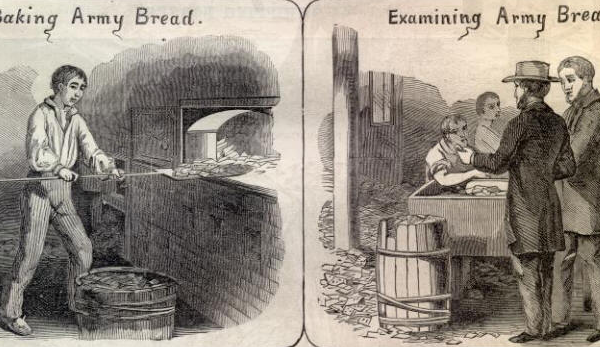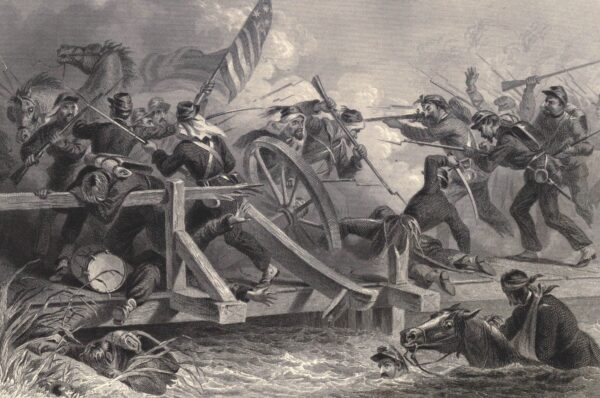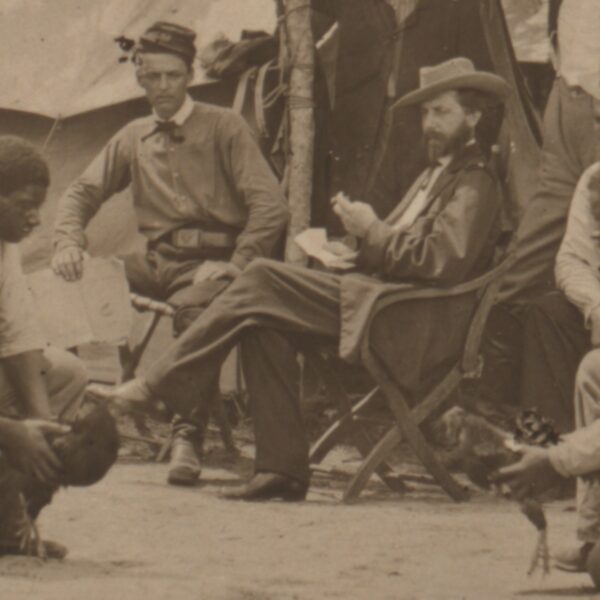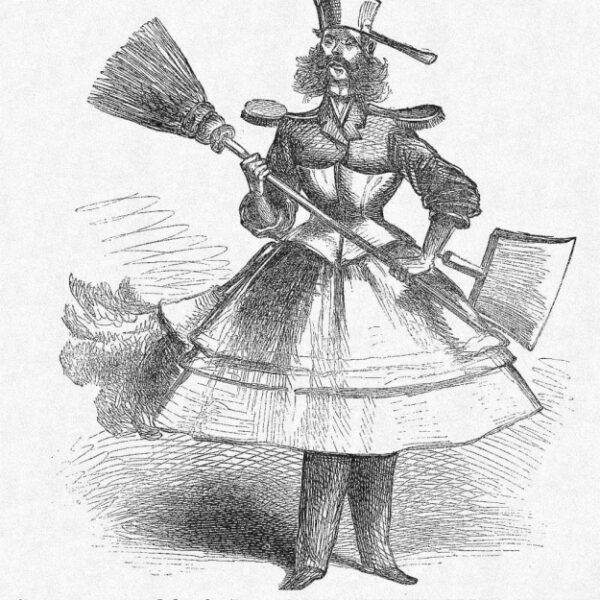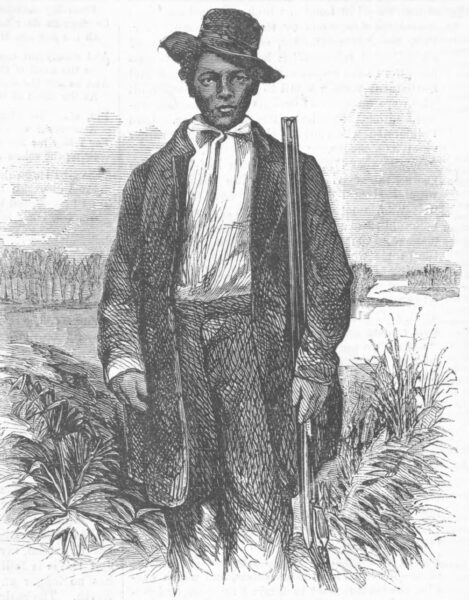 Harper's Weekly
Harper's Weekly“Union Jim” Williams
The March 28, 1863, issue of Harper’s Weekly included the following article about, and illustration of, Jim Williams, a formerly enslaved man who assisted Union forces during their presence in Lousiana. Nothing more is known about Williams’ wartime service or postwar life.
Jim Williams, whose portrait we publish on this page, is of small, compact stature, twenty-six years of age, was born in the District of Columbia, from whence he was sold about six years ago to Benjamin Barber, of Carroll Parish, Louisiana.
Williams, learning the arrival of General M‘Arthur’s division at Lake Providence, left his master about the 1st of February last, and joined the army in the capacity of cook in the Ninety-fifth Illinois Regiment. On Tuesday, the 10th of February, learning that a scouting party had just gone out to make a reconnaissance in the neighborhood of his home, Williams determined to join them; and, borrowing a mule and musket, followed and overtook the party about five miles distant, and just before they fell into a rebel ambuscade of guerrillas, numbering about two hundred and fifty, who had left their horses in the rear, and, under cover of canebreaks and bushes, were reserving their attack until our advanced-guard of about forty infantry should be fairly within range.
At this a volley was discharged by the rebels which prostrated one quarter of our men; the remainder charged bayonets and drove the rebels from their shelter. Now commenced a running fight. Jim Williams dashed to the front and swept on about one hundred and fifty yards in advance. When under cover of a tree he commenced firing; this started up three guerrillas a short distance from him. The wily scout, observing them rise, leveled his musket and demanded their surrender, upon which two threw down their arms; the third, at the same instant, fired at Williams, the ball cutting off his belted knife. Williams returned the fire, sending a ball through the head of the rebel and killing him instantly.
He then brought in his two prisoners with their guns, one of which he was allowed to keep as proof that negroes can fight. The little party of forty succeeded in dispersing the rebels and taking thirty-one prisoners before the remainder of the troops arrived. On returning to camp a guerrilla scout was observed by the quick eye of Williams a quarter of a mile off. He darted after him like a hound for his prey. The rebel waited the onset, when Williams, coming within about fifty yards, delivered an off-hand shot which sent the foe reeling on his horse’s neck, crying “O God! I’m shot.” Williams is very anxious to raise a company of negroes for scouting service, and said to the writer of this, on leaving him a few days since, “I am willing to work, but would rather fight.”
General M‘Arthur, who appreciates true bravery without regard to color, holds him in the highest estimation, and freely gives him the post of honor in scouting the swamps of Louisiana. It is the opinion of the gentleman who furnishes the above account, derived from personal observation in that region, that a force of ten thousand able-bodied negroes could be raised withing thirty days if any effort were made for that purpose.
Related topics: African Americans

